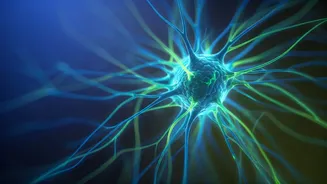Brain's Remarkable Plasticity
The brain, a highly adaptable organ, constantly changes via a process called neuroplasticity. This means it can create new neural pathways and strengthen
existing ones in response to experiences and repeated actions. Every time you perform a behavior, whether it's eating a healthy meal or going for a walk, the brain's neural networks are activated. If you repeat these actions consistently, these networks become more robust, making it easier to perform the same action in the future. This is the foundation of habit formation. Rewiring your brain with healthier habits involves consciously choosing actions and repeating them until they become automatic. This deliberate process eventually makes positive habits easier to maintain. This plasticity is what allows individuals to reprogram their brains for weight loss success, breaking free from old patterns and forming new, healthier ones.
Small Habits, Big Impact
The key to successful weight loss isn't about drastic, overnight changes but rather small, sustainable habits. Focusing on a collection of consistent behaviors, such as eating a balanced breakfast daily, drinking plenty of water, or going for a walk each evening, can have a profound effect on the body and mind. These are the building blocks that gradually alter brain pathways. Consistency is essential. When these positive actions are performed regularly, they become ingrained in the brain. They create a new normal that leads to long-term changes in behavior. Instead of trying to overhaul everything at once, focus on one or two small habits at a time. Once those become automatic, gradually introduce new ones. This approach is much more sustainable and increases the chances of success. It creates the conditions for positive change to happen, making weight loss a gradual yet achievable goal.
Mindset and Emotional Eating
In addition to building healthy habits, your mindset and emotional relationship with food play crucial roles. Weight loss isn't solely about the physical aspects of food, but also about the mental and emotional connections. Emotional eating, or using food to cope with stress, sadness, or boredom, can sabotage progress. Being aware of these triggers helps to find healthier coping mechanisms. Techniques such as mindfulness, meditation, and journaling can help manage emotions without turning to food. Cultivating a positive mindset involves self-compassion, celebrating small victories, and not being too hard on yourself when you stumble. Seeing setbacks as learning opportunities, not failures, is key. When you address the emotional aspects of eating, you're better equipped to create a lasting shift in habits and relationship with food, and ensure long term well-being.
Long-Term Strategies
Sustained weight loss requires a long-term strategy that incorporates both the science of habit formation and a healthy mindset. This means setting realistic goals and celebrating achievements, no matter how small. It also involves continuous self-evaluation and making adjustments as needed. For some, this may mean tracking their meals, creating a balanced meal plan, or keeping a food journal. Others might benefit from seeking support from a registered dietitian, therapist, or a support group. These resources offer accountability, guidance, and a sense of community. Consistency is the secret weapon to success. It's about building a lifestyle that supports your goals. By cultivating positive habits, managing emotions, and adopting a sustainable mindset, individuals can rewire their brains and maintain a healthy weight for the long term.












